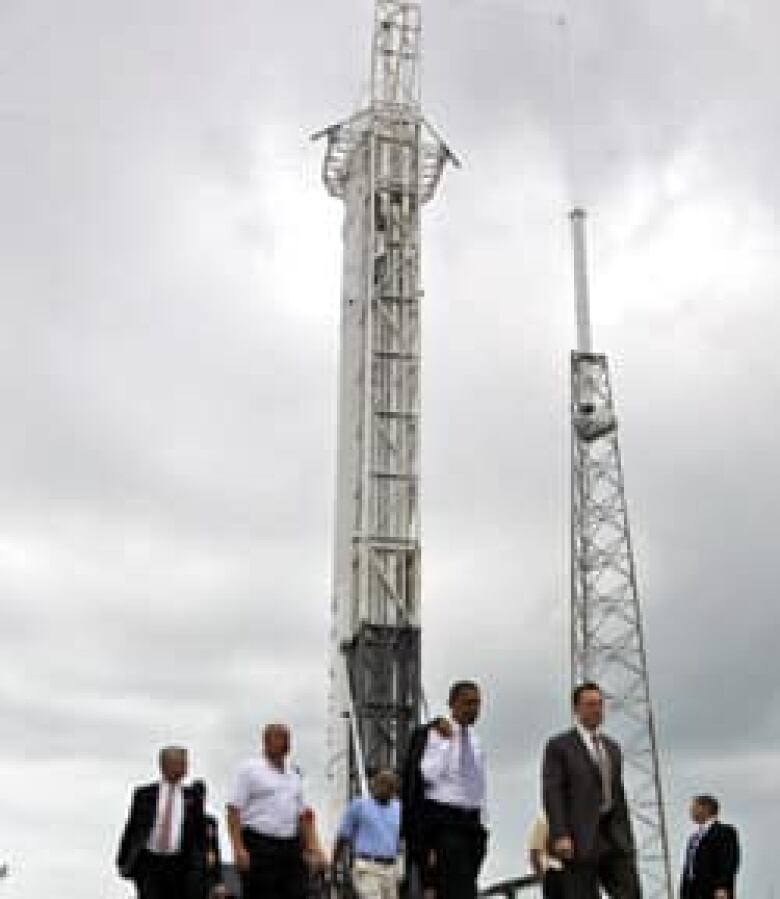Falcon 9 rocket reaches orbit
The Falcon 9 rocket was successfully launched into orbit Friday — a key part of an ambitious effort by private space company SpaceX to fill the void once the space shuttle stops flying.

After several holds, the rocket blasted off on its first flight at 2:45 p.m. ET from the Cape Canaveral Air Force Station in Florida. Nine minutes later, the SpaceX website reported it had reached Earth orbit.
"All in all, this has been a good day for SpaceX," launch commentator Robyn Ringuette said at the company's headquarters in Hawthorne, Calif.
The space community was quick to acknowledge the achievement.
"Today's flight of Falcon 9 could be the first small step toward relieving NASA launchers of the burden of low-Earth orbit, thus freeing the U.S. space agency to reach new worlds," said the Planetary Society in a statement.
The 55-metre-high Falcon 9 rocket carried an unmanned mockup cargo capsule — named Dragon — into a low-Earth orbit. Dragon will stay there for a year before it re-enters the atmosphere and burns up.
NASA hopes to use Falcon 9 rockets and its Dragon capsule to ferry cargo and perhaps eventually astronauts to the International Space Station once the shuttle program ends later this year.
SpaceX says astronaut flights could follow within three years of the company getting a contract.
Contract for 12 missions
NASA awarded SpaceX a $1.6 billion US contract in late 2008 to resupply the space station. The contract calls for a minimum of 12 flights, but there's an option to order more flights, which could boost the contract's value to $3.1 billion US.
Friday's launch was the first of three test flights for NASA. The first supply mission to the space station could take place next year.
SpaceX was founded eight years ago by Elon Musk, the multimillionaire co-founder of the PayPal electronic payment system. It's had its share of successes and failures — not unusual in the high-risk business of space flight.
SpaceX needed four tries before it was finally able to get its two-stage Falcon 1 rocket into orbit in 2008. One of the failed attempts resulted in the loss of three government satellites and human ashes, including the remains of astronaut Gordon Cooper and Star Trek actor James Doohan, when the rocket's first stage bumped into the second stage after separation.
SpaceX has spent $400 million US on developing its Falcon rocket program. Musk said a new version of the Falcon 9 is already under development.
SpaceX isn't the only private company trying to tap into the commercial space launch market. Virginia-based Orbital Sciences Corp. has also signed a development contract with NASA to deliver cargo to the space station using its new Taurus rocket.
With files from The Associated Press